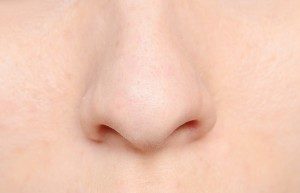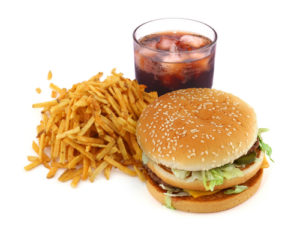 So you finally lost weight by diligently dieting, but now the issue is how to keep the weight from creeping back up again. Keeping strict watch over what you eat (basically continuing to diet)? Or exercising? Or...? Another issue muddying the waters is that a big weight loss also lowers the metabolism rate - something that occurred to former participants of the reality TV show The Biggest Loser.
So you finally lost weight by diligently dieting, but now the issue is how to keep the weight from creeping back up again. Keeping strict watch over what you eat (basically continuing to diet)? Or exercising? Or...? Another issue muddying the waters is that a big weight loss also lowers the metabolism rate - something that occurred to former participants of the reality TV show The Biggest Loser.
They lost enormous amounts of weight during the 30 week competition (over 100 pounds on average), but 6 years later much of the weight was regained, and they were burning hundreds fewer calories each day at rest. So they had become metabolically much slower over time.
A study looking at 14 former participants of The Biggest Loser 6 years after the show found that a large persistent increase in physical activity was essential for long-term maintenance of weight loss. Those who regained the least weight were the most active, and vice versa. On the other hand, food intake (keeping calorie intake low) wasn't the most important.
How much of an increase in physical activity was needed to maintain the weight loss? Researchers found that an increase of about 80 minutes of daily moderate activity (such as brisk walking) or 35 minutes of daily vigorous activity was needed. From Medscape:
The Biggest Loser: Physical Exertion Is Key to Keeping Weight Off
Persistent increased physical activity is likely essential for long-term maintenance of weight loss, new research from participants in the US TV reality show The Biggest Loser suggests.... Using objective measures for both energy intake and physical activity in 14 former Biggest Loser contestants 6 years after they participated in the competition, Dr Kerns and colleagues found that those who had regained the least weight were the most active, and vice versa. Food intake, on the other hand, had very little effect on long-term weight-loss maintenance.
Asked to comment, Eric Ravussin, PhD, Boyd Professor at Louisiana State University, Baton Rouge, and coeditor of Obesity, told Medscape Medical News that the data align with those of follow-ups to major trials — including the Diabetes Prevention Program and the Action for Health Diabetes (Look AHEAD) study as well as with the National Weight Control Registry — of thousands of people who have lost at least 30 pounds and kept them off for at least a year. "The successful losers…all report high levels of physical activity" for weight maintenance, in contrast to weight loss, for which caloric deficit plays a far greater role, Dr Ravussin noted.
The reason for the difference between what works for weight loss vs maintenance, he said, probably has a lot to do with metabolic adaptation. This was the subject of another Biggest Loser paper published in Obesity in 2016, in which a person's metabolism slows down in response to a large drop in weight, making weight-loss maintenance difficult without an extra "push" from exercise, he explained.
The subjects in the new study were 14 participants with class III obesity who participated in a single season of The Biggest Loser, during which they underwent an intensive 30-week diet and exercise program and lost an average of 60 kg. Most regained weight after the program ended, although the degree of regain was highly variable. The median weight loss after 6 years was 13%. Seven subjects above the median weighed 24.9% less than baseline (maintainers) while the seven below the line (regainers) weighed 1.1% above their baseline. The maintainers had significantly greater increases in physical activity from baseline compared with the regainers..... that 35 minutes a day of intensive exercise, or 80 minutes of moderate activity, would roughly approximate the calorie expenditures among the maintainers.

 The following is a study with weird results, really weird results. And it makes me think of all the times I've heard people joke: "just smelling food makes me gain weight", because we all knew it wasn't true. But what if it was true? .... The results of this study done in mice are that actually smelling the food one eats results in
The following is a study with weird results, really weird results. And it makes me think of all the times I've heard people joke: "just smelling food makes me gain weight", because we all knew it wasn't true. But what if it was true? .... The results of this study done in mice are that actually smelling the food one eats results in  Of course eating meals prepared at home is healthier! The
Of course eating meals prepared at home is healthier! The